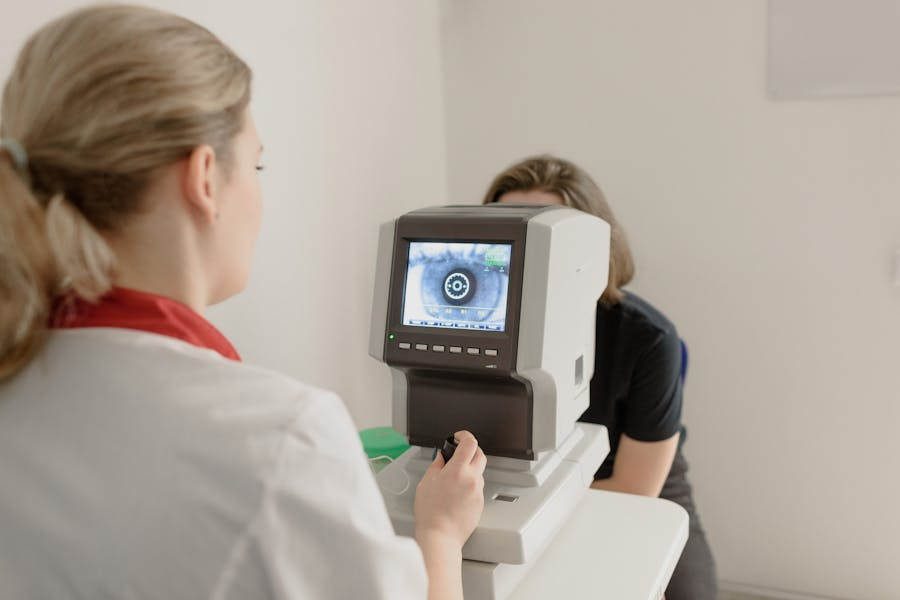


Welcome to the Dementia News – January 2025.
This is our roundup of key developments in dementia research and care.
This month’s highlights include breakthroughs in AI-powered diagnostics, insights into medications with dual benefits and risks, and actionable tips for caregivers navigating seasonal challenges.
Here’s what you need to know about the latest advancements and practical strategies to improve the lives of those impacted by dementia.

In Scotland, a groundbreaking innovation is offering new hope in the battle against dementia.
Researchers are leveraging artificial intelligence (AI) to analyze nearly one million retinal images, uncovering subtle patterns that could signal early neurodegenerative diseases.
This work, poised to transform eye exams, underscores the intricate connection between vision and brain health.
Vision as a Window to Brain Health – The retinal blood vessels serve as a mirror to brain health.
Early detection could empower routine eye exams to catch warning signs of dementia before symptoms manifest.
A Game-Changer for Early Diagnosis – Timely interventions, guided by these findings, could delay or mitigate the progression of dementia.
AI’s Role in Medical Advancements – Beyond detection, this research opens doors for developing targeted therapies and selecting candidates for clinical trials.
With the population aging globally, such advancements could redefine dementia care, offering patients and families a chance to plan and act earlier.
#Dementia #AI #EyeHealth #Neurology #HealthInnovation
GLP-1 receptor agonists, often hailed for their weight-loss benefits, are under scrutiny for their complex health implications.
Recent studies reveal a dual narrative: these drugs may lower the risk of dementia and addiction but come with significant side effects, including gastrointestinal distress, pancreatitis, and kidney problems.
Patients need to understand the balance between benefit and risk.
Close monitoring and informed decision-making are essential.
• Discuss potential side effects with your healthcare provider.
• Incorporate lifestyle changes to amplify benefits and minimize risks.
As these medications gain popularity, vigilance and education remain crucial to ensure their safe use.
#GLP1 #WeightLoss #HealthRisks #Dementia

New research suggests that your morning cup of coffee might do more than boost energy—it could protect your brain.
A study involving over 204,000 participants found that older adults consuming unsweetened, caffeinated coffee had a 34% lower risk of developing dementia.
Caffeine’s Protective Effects – The benefits were limited to unsweetened and caffeinated varieties.
Dosage Matters – Drinking more than three cups a day provided the most significant reduction in risk.
Sweeteners as a Risk Factor – Adding sugar or artificial sweeteners could negate caffeine’s benefits.
While not definitive, these findings highlight caffeine’s potential in safeguarding cognitive health, making your choice of coffee a meaningful one.
#CoffeeBenefits #DementiaRisk #CognitiveHealth #Caffeine

Everyday medications like ibuprofen may hold unexpected potential in dementia prevention.
A study by the University of Cambridge analyzed data from over 130 million people, linking anti-inflammatory drugs to a reduced risk of neurodegenerative diseases.
Inflammation’s Impact – Chronic inflammation appears to influence DNA pathways linked to dementia.
Repurposing Medications – Existing drugs could provide faster, more accessible treatments if validated through further research.
While promising, experts caution against self-medication.
Maintaining overall brain health through lifestyle choices remains a cornerstone of prevention.
Disorientation in freezing temperatures can escalate into life-threatening situations.
Caregivers play a vital role in mitigating these risks.
#DementiaPrevention #Ibuprofen #BrainHealth #InflammationResearch

Emerging evidence connects high red meat consumption to an increased risk of dementia.
Processed meats, in particular, appear to accelerate cognitive aging by nearly two years and elevate dementia risk by 13%.
Reduce Intake – Limit red meat to three servings a week.
Opt for Plant-Based Proteins – Foods like beans and nuts are associated with a 19% reduction in cognitive decline risk.
Follow Proven Diets – Adopting a Mediterranean diet—rich in fruits, vegetables, and healthy fats—supports both brain and overall health.
These findings underscore the importance of dietary choices in maintaining cognitive longevity.
Small changes today can pave the way for a healthier tomorrow.
#BrainHealth #RedMeat #DementiaPrevention #HealthyEating

Discover effective strategies to prevent wandering risks during winter for loved ones with dementia.
Learn how to create a safe home environment and develop proactive plans.
Wandering is a serious concern for individuals with dementia, especially in winter when cold weather can pose additional risks.
Those who wander may become lost or disoriented, unable to recall how to get home or seek help.
To safeguard loved ones, caregivers should recognize early signs of wandering, such as leaving home without proper attire or returning late from familiar outings.
Recognize Triggers – Track patterns of wandering, especially in the evening.
Enhance Home Safety – Remove cues like visible keys or jackets near exits.
Use Technology – Door alarms and GPS devices can alert caregivers and aid in quick responses.
Prepare for Emergencies – Keep an updated photo and essential information ready for first responders.
By staying vigilant and proactive, caregivers can create safer environments for their loved ones.
#DementiaCare #Wandering #WinterSafety #CaregiverSupport #AlzheimersAwareness

If you are seeking compassionate and comprehensive dementia care in the Denver area, Applewood Our House is here to help.
Contact us today to learn more about our specialized services and how we can support your loved ones.